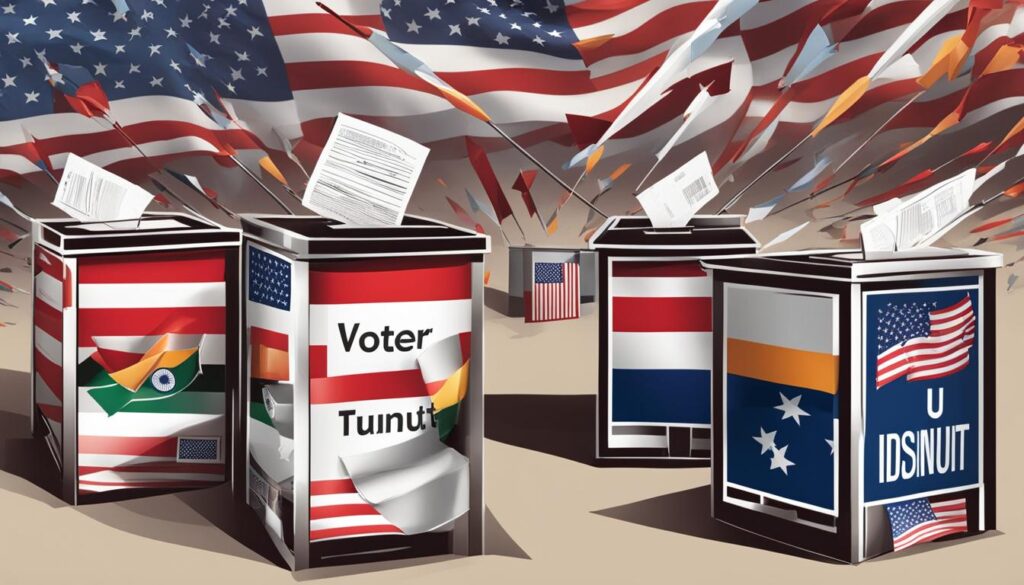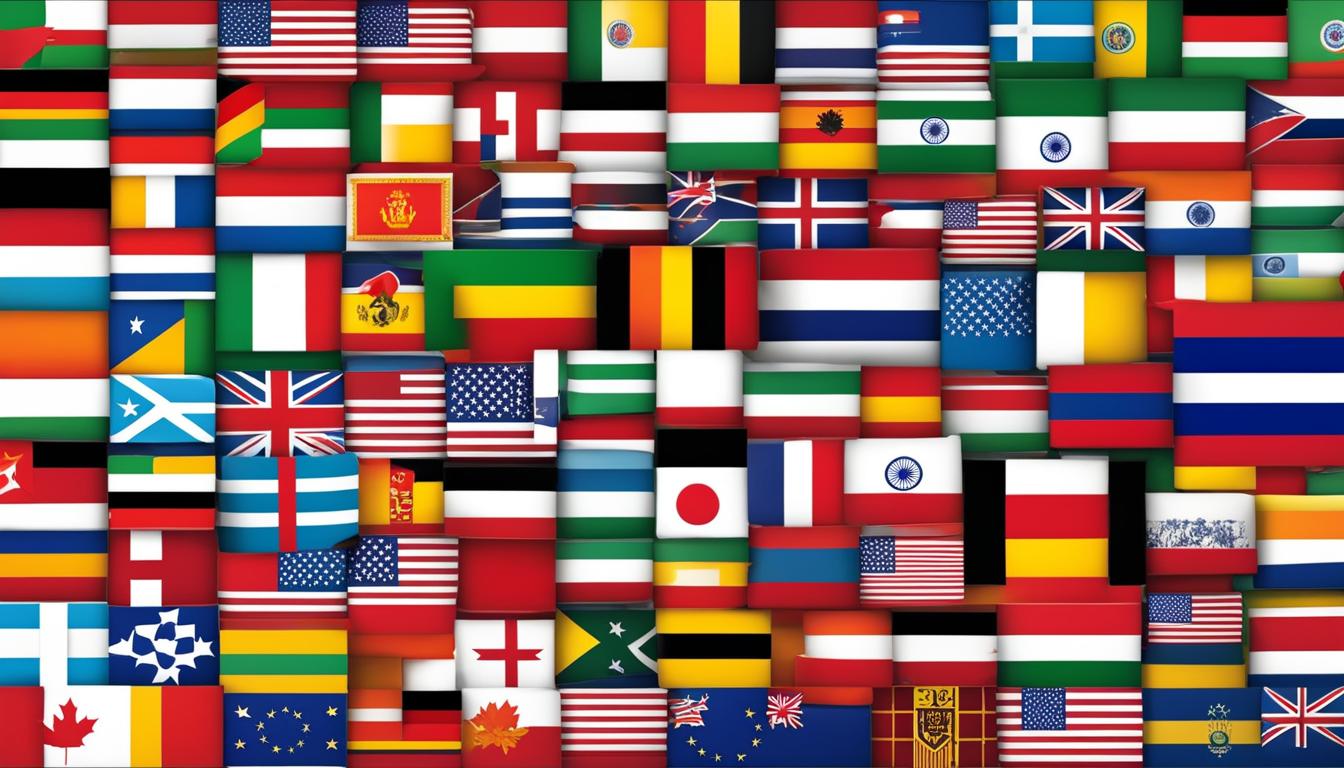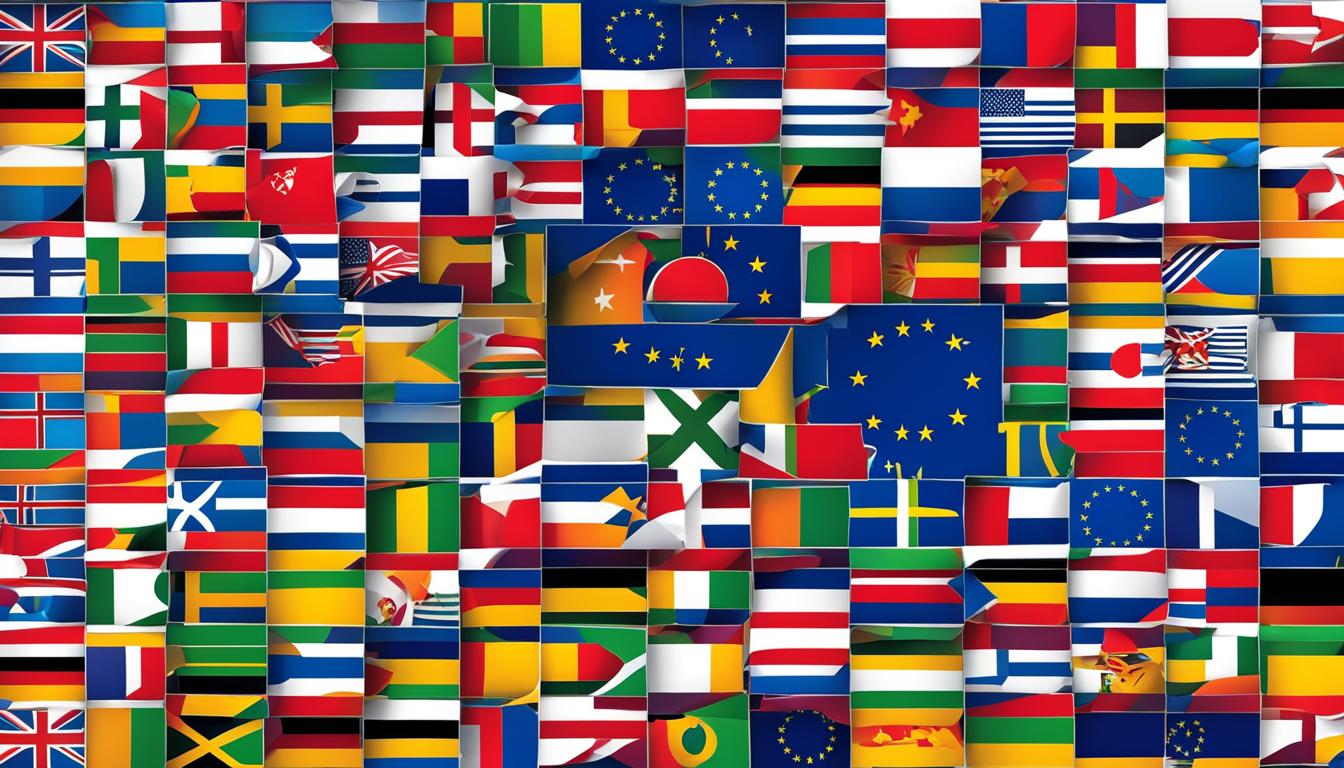When it comes to democratic systems, the United States, India, and Germany each have their own unique characteristics. From public opinion to government trust, these countries provide fascinating insights into the diverse world of democracy.
Let’s begin by analyzing the democratic system of the United States. With its long-standing history of democracy, the U.S. has been a pioneer in shaping democratic institutions. However, recent political polarization and concerns over the influence of money in elections have raised questions about the effectiveness of the American democratic system.
India, on the other hand, boasts the world’s largest democracy. Despite its challenges in terms of poverty and corruption, India has managed to uphold the democratic principles of free and fair elections, giving voice to its diverse population.
And finally, Germany, known for its stable political system and strong economy, has adopted a parliamentary democracy. This system ensures representation and accountability through multi-party coalitions.
Through a comprehensive examination of these democracies, we can gain valuable insights into their strengths, weaknesses, and how they tackle global challenges.
Key Takeaways:
- Comparing the democratic systems of the U.S., India, and Germany reveals distinct features and differences.
- The U.S. faces challenges in terms of political polarization and the influence of money in elections.
- India’s democratic system is the largest in the world, but it grapples with issues of poverty and corruption.
- Germany’s parliamentary democracy ensures representation and accountability through multi-party coalitions.
- An in-depth analysis of these democracies sheds light on their governance and political institutions.
Public Opinion on U.S.-Germany Relationship
According to a recent public opinion survey conducted by Pew Research Center and Körber-Stiftung, the relationship between the United States and Germany is perceived favorably by the majority of citizens in both countries. The survey revealed that 85% of Americans and 77% of Germans view the bilateral relationship as good.
The study also shed light on the different perspectives held by Americans and Germans regarding key issues and partnerships. Americans consider Germany to be a crucial partner when dealing with challenges posed by China and the war in Ukraine. In contrast, Germans are more cautious about aligning with the United States on these matters.
The survey findings further indicated that positive sentiment towards Germany in the United States transcends political party lines, with both Democrats and Republicans expressing a favorable view. However, Democrats tend to be more inclined to see Germany as a reliable partner on key international issues.
| Views on U.S.-Germany Relationship | Americans | Germans |
|---|---|---|
| Perceived relationship | 85% consider it good | 77% consider it good |
| Views on partnering with Germany on dealing with China | 73% see Germany as a partner | 46% see Germany as a partner |
| Views on partnering with Germany on the war in Ukraine | 73% see Germany as a partner | 35% see Germany as a partner |
| Bipartisan support for Germany as a reliable partner | Both Democrats and Republicans | N/A |
These findings highlight the importance of understanding public opinion in shaping the transatlantic partnership between the United States and Germany. By recognizing and addressing the differences in perceptions, policymakers and diplomats can work towards strengthening cooperation and fostering mutual understanding.
American and German Views on Russia and China
The survey conducted by Pew Research Center and Körber-Stiftung provides valuable insights into the contrasting views of Americans and Germans regarding Russia and China. While both countries perceive Russia as a military threat, the level of concern varies significantly. Approximately 68% of Americans consider Russia a major threat, while only 36% of Germans share this perspective. This disparity highlights the different security perceptions and geopolitical priorities of the two nations.
In terms of economic and security threats, Americans express greater apprehension towards China, with 70% viewing it as a major threat in both domains. On the other hand, only 13% of Germans see China as a significant threat. This discrepancy indicates divergent views on the nature of China’s rise and its implications for global order. Germans, however, share a general concern about China’s growing influence, which is consistent with broader European sentiments.
The Rising Influence of China
Despite disparities in threat perceptions, both Americans and Germans recognize China’s rising influence as a global power. The survey reveals that Americans, at a rate of 76%, perceive China’s growing influence as a major global challenge. Similarly, 73% of Germans share this sentiment. This shared concern highlights the increasing recognition of China’s role in shaping the future geopolitical landscape and underscores the necessity for U.S.-European cooperation.
| American Views | German Views | |
|---|---|---|
| Military Threat (Russia) | 68% | 36% |
| Economic Threat (China) | 70% | 13% |
| Rising Influence (China) | 76% | 73% |
Overall, the survey highlights the nuanced differences in American and German perceptions of Russia and China. While Americans maintain a higher level of concern regarding both countries, Germans approach these issues with a more moderate perspective. Recognizing and understanding these contrasting views is crucial for fostering effective transatlantic partnerships and promoting cooperation in addressing the complex challenges posed by Russia and China.
Trust in Democracy and Government
Trust in democratic institutions is a crucial factor in the stability and effectiveness of a democratic system. Unfortunately, there has been a notable decline in trust in both democracy and government on both sides of the Atlantic. In the United States, high levels of partisan polarization and socioeconomic inequality have contributed to this erosion of trust. A Pew Research Center study found that only 20% of Americans say they trust the government to do what is right always or most of the time.
Similarly, in Europe, there are concerns about the state of democracy and trust in government. Some Central European countries have experienced a rise in populist movements and governments that have taken steps to undermine independent civil society and the rule of law. The European Union has also faced criticism for decisions made at the European level, which have sometimes led to a disconnect between Brussels and European voters.
These challenges have contributed to a sense of disillusionment with democratic institutions and a perception of a democracy deficit. In order to restore trust, it is crucial for political institutions to address these concerns and work towards greater transparency, accountability, and responsiveness to the needs and aspirations of the people they serve.
| Trust in Democracy | Trust in Government | |
|---|---|---|
| United States | 20% | 23% |
| Germany | 48% | 42% |
| India | 59% | 56% |
Note: The table above provides a comparison of trust in democracy and government in the United States, Germany, and India based on available data. The percentages reflect the proportion of respondents who say they trust democracy or the government to do what is right always or most of the time.
Election Systems and Political Challenges
The electoral process plays a crucial role in shaping the functioning and dynamics of democracies. Different election systems can have significant implications for political representation, the rise of extremism, voting restrictions, and political fragmentation. Understanding these challenges is essential to ensure the fair and effective functioning of democratic societies.
Election Systems
In the United States, the winner-take-all system is employed in most states’ elections. This system means that the candidate who receives the most votes in a particular constituency wins, while the other candidates receive no representation. This can lead to a lack of diversity and marginalization of minority voices. Furthermore, issues like partisan gerrymandering, where electoral district boundaries are redrawn to favor a particular political party, can distort the representation of voters’ preferences.
In contrast, many European countries use proportional representation systems, where seats in parliament are allocated based on the proportion of votes each party receives. While this system allows for a more accurate reflection of voter preferences and greater representation for smaller parties, it also opens the door for extremist and antipluralist political forces to gain parliamentary seats, leading to political polarization and fragmentation.
Voting Restrictions and Political Fragmentation
Voting restrictions, such as voter ID laws and limited access to polling stations, can disproportionately impact marginalized communities and hinder their ability to exercise their right to vote. These restrictions can undermine the principles of inclusivity and equality in democratic societies.
Political fragmentation, resulting from the rise of extremist and antipluralist political parties, poses challenges to governance and coalition building. With more parties holding seats in parliaments, forming stable governments becomes increasingly complex. This can impede decision-making processes and hinder effective policy implementation.
To address these challenges and maintain the integrity of democratic systems, it is crucial to ensure fair and inclusive election processes, promote political representation for all citizens, and safeguard against the marginalization of minority voices.

Conclusion
The democratic weaknesses observed in both the United States and Europe call for increased cooperation and political collaboration between the two regions. Issues such as declining trust in democratic institutions, disillusionment with mainstream parties, and concerns over civil liberties are common challenges that need to be addressed.
While the United States suffers from high levels of partisan polarization, Europe faces a democracy deficit and a disconnect between Brussels and European voters. However, these differences provide an opportunity for mutual learning and democratic deepening.
By working together, the United States and Europe can overcome these challenges, strengthen democratic institutions, and regain public trust. Political cooperation and collaboration on key issues will be crucial in tackling disinformation, addressing the decline in trust, and fostering a more inclusive and participatory democracy.
Through this partnership, both regions can contribute to the deepening of democratic values and principles, ensuring that democratic systems are resilient, responsive, and accountable to the needs and aspirations of their citizens.
FAQ
What are the main differences between the democratic systems of the United States, India, and Germany?
The democratic systems of these countries differ in terms of public opinion, international relations, and views on global challenges. The United States and Germany have a positive relationship, while India has a different dynamic. Americans see Germany as a partner on key issues, while Germans are less confident about partnering with the United States. The perception of threats from Russia and China also varies between these democracies.
Is trust in democratic institutions declining in the United States and Europe?
Yes, both the United States and Europe are experiencing a decline in trust in democratic institutions. In the United States, high levels of partisan polarization and socioeconomic inequality contribute to this decline. In Europe, electoral systems allow for extremist and antipluralist political forces to gain representation, leading to disillusionment with mainstream parties. Additionally, decisions made at the European level have disconnected Brussels from European voters, fueling Euroskepticism.
How do the electoral processes differ between the United States and Europe?
The United States uses a winner-take-all system, which poses challenges to political representation, including issues like partisan gerrymandering and voting restrictions. In Europe, proportional representation systems allow for more extremist and antipluralist political forces to gain parliamentary seats. This has led to political polarization, fragmentation, and complex coalition formation.
What are the common challenges facing the United States and Europe in terms of their democratic systems?
The United States and Europe share common challenges, including declining trust in democratic institutions, disillusionment with mainstream parties, disinformation, and concerns over civil liberties. However, they also face unique challenges, such as high levels of partisan polarization in the United States and a democracy deficit in Europe. These challenges provide an opportunity for mutual learning and cooperation between the United States and Europe to strengthen democratic institutions and regain public trust.
Source Links
- https://www.pewresearch.org/global/2023/11/27/u-s-germany-relationship-remains-solid-but-underlying-policy-differences-begin-to-show/
- https://www.pewresearch.org/short-reads/2017/10/30/global-views-political-systems/
- https://carnegieendowment.org/2018/06/21/comparing-democratic-distress-in-united-states-and-europe-pub-76646
 Skip to main content
Skip to main content


